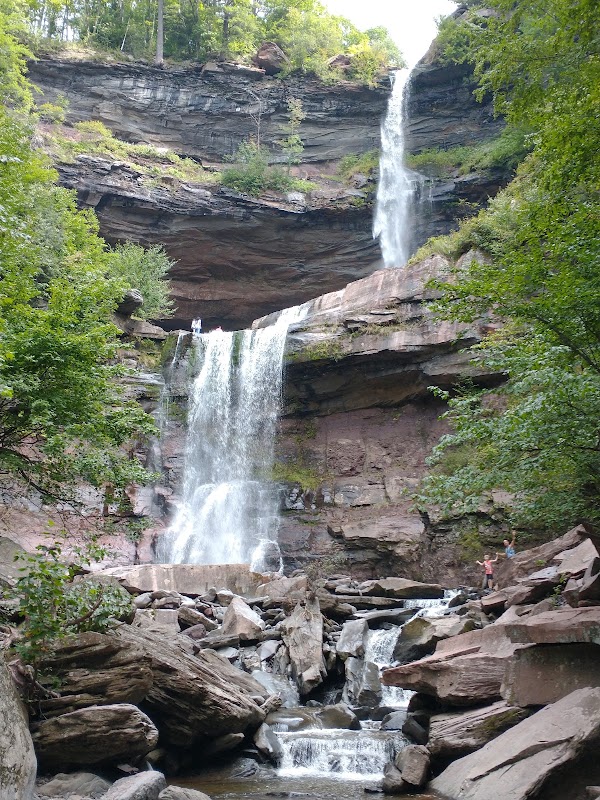Essential River Etiquette and Emergency Protocols for Novice Whitewater Paddlers in Massachusetts
Massachusetts offers some of New England's most accessible whitewater runs, perfect for novice paddlers eager to test their skills. This guide covers river etiquette and emergency protocols crucial for safe and confident river adventures close to Greenfield, where rushing currents teach humility and respect.
Always Wear a PFD and Helmet
Choosing properly fitting personal flotation devices and helmets reduces injury risk dramatically in whitewater environments.
Learn Basic River Signals
Before getting on the water, study standard paddler hand signals and shout commands to communicate efficiently during rapids.
Scout Rapids Before Attempting
If possible, exit and walk around difficult sections to plan your approach, avoiding unexpected hazards.
Inform Someone on Shore of Your Plan
Leave your paddling route and expected return time with a reliable contact to accelerate rescue efforts if needed.
Essential River Etiquette and Emergency Protocols for Novice Whitewater Paddlers in Massachusetts

Teen Beginner Kayak 3 Day Immersion Course
Ages 14-17 | Beginner/Novice Level | Class I-II Rapids
Discover how teenagers can gain confidence on the water with Zoar Outdoor’s 3-day beginner kayak course in Charlemont, MA. Perfect for new paddlers, this immersive experience combines expert instruction with fun riverside adventure.
The swift currents of Massachusetts' whitewater rivers beckon novice paddlers with a mix of thrill and challenge. Rivers like the Deerfield and Westfield dare you forward, their flowing power insisting on respect and understanding before you step into the canoe or kayak. For those new to whitewater, mastering river etiquette and emergency protocols is critical—not to dampen excitement, but to make the adventure safer and more rewarding.
Start by acknowledging the river as a living force: it guides your craft with unseen hands, but shows no mercy for unpreparedness. Always wear a properly fitted life jacket and helmet. These essentials shield you against the unexpected: swirling eddies, rogue rocks, and the swift pull of a strainer. Your gear is your first line of defense, blending practicality with safety.
On the water, communication is queen. Paddle groups maintain clear, concise signals—simple hand gestures and vocal calls are your tools to navigate together. Respect other river users by yielding the right of way, especially at rapids and narrow passages. Avoid blocking the flow; the river depends on momentum, just like you.
When approaching rapids, scout beforehand if possible. Understanding the course—the placement of rocks, the strength of hydraulics—allows for smart navigation rather than risky guesswork. If you're unsure, portage around difficulties. The goal isn’t to conquer the river but to work alongside it.
Emergencies demand a calm, practiced response. If someone flips, assist with a rescue throw bag promptly and keep a keen eye on the current’s pull. Never attempt a swim unless trained; the river’s urgency is relentless. Always paddle with partners and share your route plans with someone on shore.
Hydration and timing also factor heavily into river safety. Heat and exertion sap focus, so drink water at every opportunity and start your runs early to avoid afternoon thunderstorms common in the region. Layered synthetic clothing protects against cold water shock—massachusetts rivers can bite even in warm months.
Finally, leave no trace. The river’s edges are habitats for fragile wildlife and plants. Pack out all trash and treat the shorelines with care. Your approach to river etiquette reflects your respect for nature’s fiercely independent character.
By combining respect, preparation, and practical skill, novice paddlers can engage with Massachusetts’ whitewater rivers as partners in an adventurous dance—one where safety is not an obstacle, but the foundation of every thrilling stroke.
Nearby Trips
All Adventures
Boat Charters
Water Activities
Adventures near Greenfield
Discover the unique and memorable adventures that make Greenfield special.
Frequently Asked Questions
What are the most beginner-friendly rivers for whitewater paddling in Massachusetts?
The Deerfield River near Greenfield and the Westfield River offer sections suitable for novices, featuring manageable rapids and accessible entry points for practice.
How should I handle capsizing in cold water?
Stay calm, keep your feet pointing downstream to avoid snagging, attempt to roll back if trained, or swim to shore while protecting your head. Always wear a PFD to aid flotation.
What emergency equipment should I carry during a paddling trip?
Beyond safety gear like helmets and PFDs, bring a rescue throw bag, whistle, waterproof first aid kit, and a communication device in a dry bag for urgent help.
Are group paddles necessary for safety as a novice?
Absolutely. Paddling with experienced partners increases your safety and provides immediate assistance if you encounter trouble on the water.
How can I respect local wildlife while paddling?
Keep a safe distance from nesting birds, avoid disturbing riverbank habitats, and never feed or attempt to touch animals you encounter on the river.
Can I paddle year-round in Massachusetts?
Winter paddling is not recommended due to frozen conditions and hypothermia risks. The prime seasons for paddling stretch from late spring through early fall.
Recommended Gear
Personal Flotation Device (PFD)
A Coast Guard-approved PFD provides buoyancy and enhances safety in turbulent waters.
Helmet
Protects your head from rocks and obstacles hidden beneath the whitewater's surface.
Spray Skirt
Keeps water out of your kayak, maintaining stability and control when navigating rapids.
Synthetic Layered Clothing
Moisture-wicking layers that dry quickly and provide insulation against the cold spray of the river.
Local Insights
Hidden Gems
- "Lookout Point on the Deerfield River offers a rarely visited spot ideal for scouting rapids."
- "Hawk Rock provides a quiet shoreline perfect for quick recovery breaks and wildlife observation."
Wildlife
- "Watch for bald eagles and ospreys fishing above the river."
- "River otters are active near calm pools during quieter paddling hours."
History
"The Deerfield and Westfield rivers have long histories as trade routes for Native American tribes and later early settlers, with remnants of old mills standing along their banks."
